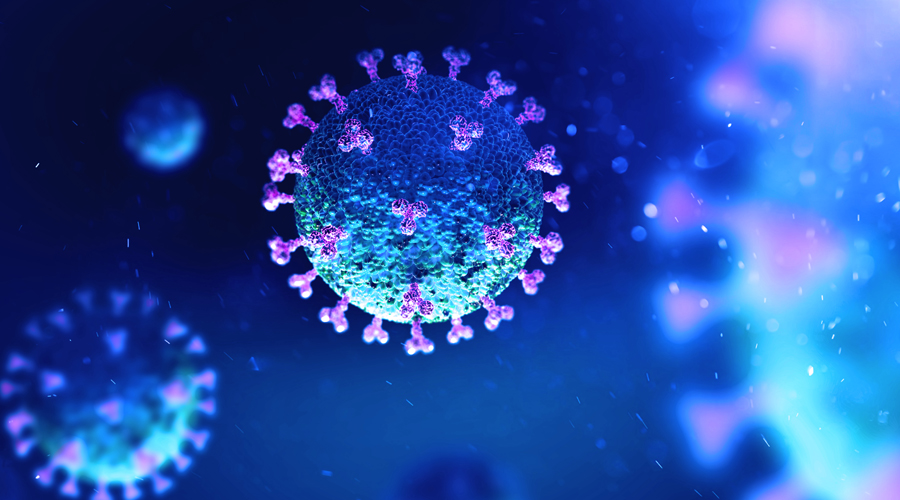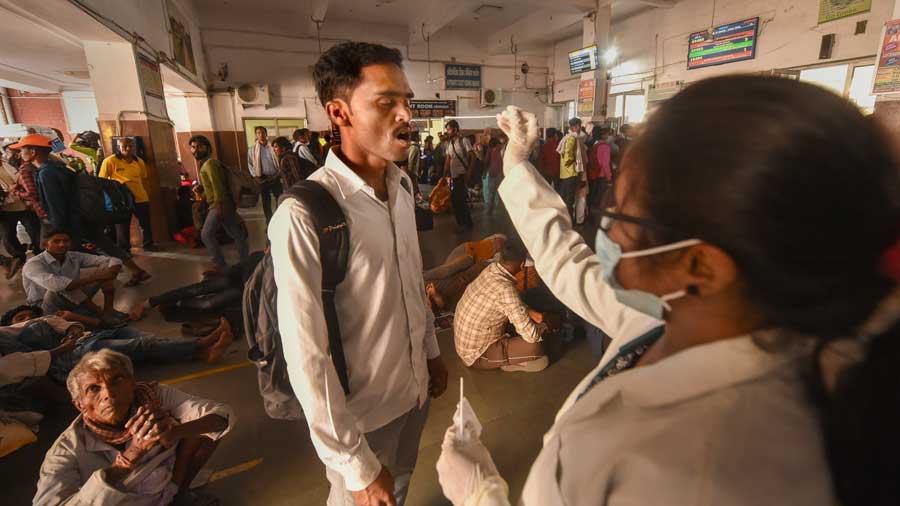A painkiller called indomethacin prescribed for arthritis and spondylitis is an effective treatment for mild or moderate Covid-19, Chennai-based researchers have told India’s apex health research agency, seeking its inclusion in Covid-19 treatment guidelines.
The researchers have submitted what they claim are “striking” study results, indicating that patients of mild or moderate Covid-19 who received indomethacin were less likely to need extra oxygen and recovered faster than patients who received paracetamol, the standard anti-fever medication.
The study, conducted during the country’s second Covid-19 wave between April and July 2021, had found that 20 of 107 patients who received paracetamol needed extra oxygen, compared with none of 103 patients who received indomethacin.
Also, the patients on indomethacin recovered from fever in an average of three days and from cough in four days compared with seven days for those on paracetamol. The results were published in the peer-reviewed journal Nature Scientific Reports on April 19.
“We’re hoping that now, at least, authorities will add this remedy into Covid-19 treatment protocols,” said Rajan Ravichandran, a nephrologist at Miot International, a speciality hospital in Chennai, who led the research study.
The Indian Council of Medical Research and the national task force that prepares Covid-19 treatment guidelines have not yet included indomethacin into the guidelines despite what the Chennai researchers believe is “strong science” to back its inclusion.
Ravichandran had presented the study results to the ICMR and members of the task force in July 2021 immediately after analysing the outcome, and in January this year.
He said he was told on both occasions that while the results were encouraging, the findings were based on a relatively small count of patients and that the results needed to undergo peer review, a standard practice in research.
The ICMR and a task force member did not respond to queries from this newspaper seeking their views on the study’s findings.
But experts not associated with either the ICMR or the task force said it was unlikely that the task force would add a medicine to the guidelines after a study on only 210 patients.
One expert underlined that the study was not double-blinded — a protocol in which neither the doctors nor the patients know who is receiving which drug.
Such protocols are considered among the most rigorous ways of evaluating the effects of medicines.
“We were told that indomethacin is an approved drug — and doctors are at liberty to use it on Covid-19 patients,” Ravichandran told The Telegraph. “But it is much easier for doctors to prescribe a medicine when it is listed in the treatment guidelines.”
Indomethacin is a relatively inexpensive non-steroid anti-inflammatory drug (NSAID), approved in the 1960s and prescribed for rheumatoid arthritis, ankylosing spondylitis and other inflammatory disorders.
But a team led by virologist Gabriella Santoro at the University of Rome, Italy, found in 2006 that indomethacin also has anti-viral activity against SARS, the first deadly coronavirus that spread across the world in 2003-04.
Scientists in China and the US had by April 2020 proposed indomethacin as a potential inhibitor of SARS-CoV-2 — the virus that causes Covid-19 — after lab tests on cells infected with the virus and on dogs infected with the canine coronavirus.
Ravichandran shared Santoro’s study with his long-term collaborator Ramarathnam Krishna Kumar, a professor in the engineering design department at the Indian Institute of Technology, Madras, and initiated their first study on Covid-19 patients in March 2020.
In a single Covid-19 ward at the Narayana Medical College, Nellore, they offered indomethacin to some patients and paracetamol to others. “The results were dramatic,” said Krishna Kumar, who helped with data analysis and interpretation.
Most patients had been admitted with symptoms of breathlessness. While 23 of 67 patients who received paracetamol required extra oxygen, none of the 61 patients who received indomethacin required oxygen therapy.
The researchers said the evidence for indomethacin’s potential benefits grew in subsequent months.
US researchers had noted by December 2020 that among Covid-19 patients, indomethacin users were substantially less likely to require hospitalisation than users of another NSAID called celecoxib. Indomethacin blocks an enzyme that aids viral replication, while celecoxib does not.
In their second and larger study, the Chennai researchers offered indomethacin to 103 patients and paracetamol to 107 patients at the Panimalar Medical College, Chennai. “The results are striking,” the researchers wrote in their paper.
The Chennai researchers say they cannot explain why indomethacin hasn’t evoked greater attention from the medical and research community.
“I don’t know, maybe the remedy appears too simple for a pandemic like Covid-19,” said Ravichandran. “I guess indomethacin has no champions rooting for it.”












